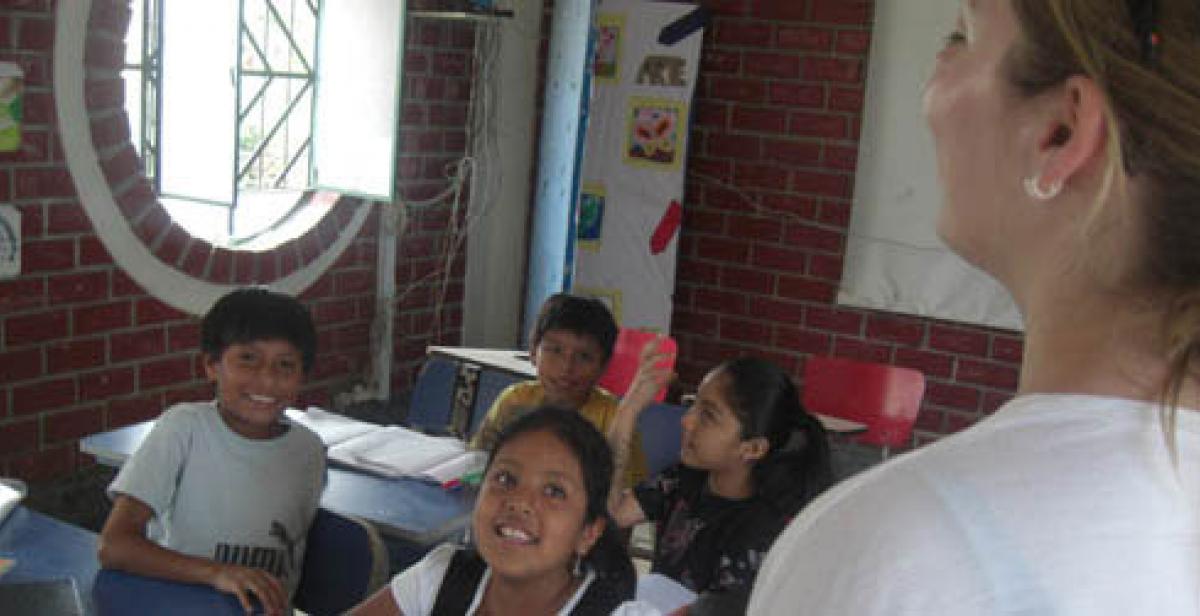Casas de la Juventud was started by the previous government and in partnership with the French government, aiming to prevent social problems in less developed areas. They initially created 4 Casas de la Juventud in Villa El Salvador to prevent these problems.
To achieve these aims Casas provides workshops and talks in order to empower young people and prevent crime through keeping them off the streets through engaging them with worthwhile activities.
As it is a government run organisation in the past it has suffered as a result of changing policies brought by different administrations.
“My role is to support the social development of the children in this area and to take them away from their problems.” – Luis Parejas, Manager at Casa de la Juventud, Pachacamac
We interviewed 3 Casas de la Juventud managers about their thoughts on education in Peru and the problems facing young people. The main issues highlighted were that there is a lack of awareness about Casas de la Juventud and similar organisations, which means that children do not benefit from the opportunities that exist. Education is not prioritised enough and doesn’t cover enough areas and children don’t make the best use of their time. In order to improve the education system there needs to be more projects, more initiatives and more cooperation with other organisations to support young people.
The main social problems of gang violence, drug and alcohol addiction and teenage pregnancy are targeted by the Casas projects. However the managers highlighted the need to increase participation to achieve a wider impact. The key to dealing with these problems is to organise young people and provide them with a space where they can develop and be empowered to be productive members of society in a safe and positive environment.
We conducted educational focus groups with the children we have been teaching to find out their hopes for the future and what change they want to see in Villa El Salvador. The professions the children are striving towards were varied but most fall under the area of health and social care with many children wanting to be doctors, teachers and police workers. They all referred to education and hard work in their studies as the key to achieving these careers. They recognised that some of these professions require you to go to university and this was something they saw as achievable due to the availability of public universities and scholarships.
“I want to be a great fashion designer. To achieve this I will try hard, study and give all of myself to make my dream a reality.” – Diana Yalico, age 14, English student at Casa de la Juventud 6.
Based in 3 different Casas, Progressio Empower volunteers delivered a course of English classes to the children of Villa El Salvador. Learning English was identified by the managers and children as an important subject for their development.
All agreed that it is an important language because it is the global commercial language and will help young people in their future careers. As it is a required subject in school, extracurricular English classes support their formal education.
Managers also highlight that it enables communication and cooperation with other countries which subsequently facilitates development.
It was only when asked if they thought there were sufficient opportunities for young people in Villa El Salvador that the managers and children differed in their answers. Whilst the children felt there were enough opportunities the managers were more sceptical. They found that young people are hindered by economic problems and a lack of education, and that only a minority have access to sufficient opportunities. Furthermore, whilst there aren’t enough opportunities, people do not always make the most of the few opportunities that do exist due a lack of awareness about organisations such as Casas de la Juventud and the help and support they provide.
The children have a positive outlook about their future. The young people who do attend programmes at Casas want to see a cleaner and better Villa El Salvador. Despite the community having been created in a desert the overall vision is that there will be more green spaces and parks with trees and plants. They also identified security as an issue and hoped that Villa would become a safer and more secure place to live in.
The thoughts, hopes and dreams of the children we have been teaching:
“Education enables you to make something of your life” – Daniela, age 12, Casa Pachacamac
“I want to see a Villa with plants, clean areas and new schools” – Andres, age 8, Casa 6
“I want more parks, more greenery, less cars, more metros and less crime” – Jasmin, age 14, Casa 5
By Stephanie Criddle and Alana Barlow. Photo by Monju Meah.



